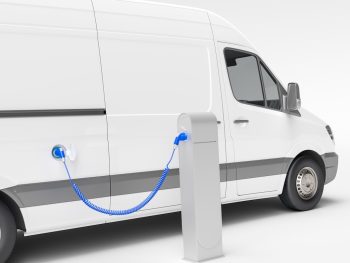Any government help offered to the motor industry to help hit future ZEV mandate targets should consider electric van demand as well as supply to spur fleet uptake, the Association of Fleet Professionals (AFP) has said.

Transport Secretary Louise Haigh is reportedly considering ZEV mandate “flexibilities” following a meeting yesterday with vehicle makers after warnings from OEMs of “irreversible damage” from the EV rules.
But AFP chair Paul Hollick said that the mooted measures, such as allowing manufacturer factory emissions to be taken into account or including exported vehicles made in the UK in the tally, would do nothing to encourage van fleets to electrify.
Hollick said the demand issues behind slow electric van uptake were outlined in the Zero Emission Van Plan launched by the AFP with the BVRLA and other parties a few months ago – and include insufficient public and private charging infrastructure, regulatory barriers, and affordability and availability of suitable product.
“The problem with electric van sales is not so much that they are lower than expected, as seen in the electric car market, but that they appear to have stalled altogether around the 5% mark. Fleets are effectively refusing to buy them for practical reasons and forcing manufacturers to make increasing percentages of vehicles under the ZEV mandate doesn’t solve that core problem.”
And Hollick said that while news that the Government is in “listening mode” was welcome, measures seemed to be centred around helping manufacturers offset limited demand rather than finding ways to dramatically encourage fleets to purchase.
Warning of an “unsustainable situation”, Hollick said that only a step change in technology improving the range and payload issues with electric vans would resolve core fleet objections, so potential government action lay instead in areas such as infrastructure, regulation and financial incentives.
“Again, as mentioned in the Zero Emission Van Plan, we need to find ways of rapidly making more chargers offering cheap power available in more places and more accessible to vans, as well as resolving the ongoing issues around licencing and operation of 4.25-tonne vans. Improving these scenarios would potentially create at least some impetus.”
The AFP also said that nothing changes the core fact that the rapid electrification of electric car fleets was largely powered by massive Benefit-in-Kind tax incentives.
“A similar ‘carrot’ may be necessary for electric vans to generate the kind of momentum that the Government wants to see. Businesses may need to be given a genuine financial benefit to offset the operational problems they experience around electric vans.
“We’re presently in a situation where it appears that many fleets, having found during the pandemic that they can practically extend replacement cycles by several years, are planning to hang on to existing diesel vans until the situation surrounding electric vans improves. Pushing more and more production volume into a market where that kind of attitude is present makes limited sense.”

